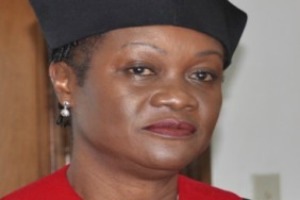On 2nd Thoughts: Rising lawlessness in Liberia-an alarming trend

By Othello B. Garblah
Last week, the lawlessness in Liberia reached an unprecedented level, with officers from the Liberia National Police and the Armed Forces of Liberia displaying a blatant disregard for the rule of law. This issue pervades all levels of government, from the Executive to law enforcement agencies.
The violent clash between LNP and AFL officers, sparked by an attempt to enforce traffic laws, clearly demonstrates the new norm of violating laws with impunity here.
The story of the LNP and AFL officers is just the tip of the iceberg. In recent years, Liberia has been grappling with a surge in lawlessness that has sparked widespread concern both locally and internationally. The tiny West African nation, still recovering from the ravages of more than two decades of civil wars, now faces this new challenge: a rampant increase in lawlessness.
The new level of rising lawlessness in Liberia poses significant threats to the nation’s stability and development. It also undermines the credibility and functionality of democratic institutions. The government can lose its legitimacy and support from its citizens if it cannot ensure their safety and security.
Furthermore, lawlessness and impunity, especially coming from those entrusted to uphold and protect the constitution, can deter foreign investment and hamper economic growth. Businesses are less likely to operate in areas where the rule of law is not respected.
It is undisputable that government officials, including law enforcement agencies, violate these basic traffic laws with impunity. A traffic law only becomes enforceable when it applies to ordinary citizens.
For example, law enforcement officers, including the police, AFL, and other security apparatus, violate traffic rules they are supposed to enforce by using unregistered vehicles, lacking driver’s licenses or insurance, and ignoring no-go zones.
These actions highlight the pervasive disregard for the laws and constitution they are sworn to uphold. For them, these regulations are only applicable to citizens. They see themselves as being above the law.
And rightfully so, because they take queue from their bosses at the National Legislature and the Executive Branches of Government who have demonstrated and continue to demonstrate the flagrant violation of the very laws that empowered them.
Both the Legislative and Executive branches have disobeyed Supreme Court rulings. President Joseph Boakai ignored a Supreme Court decision that protected tenure positions and proceeded to suspend officials at his discretion while appointing individuals to act in their steads.
Similarly, the House of Representatives refused to comply with a Supreme Court ruling to return to the status quo after the Superior Court rendered its opinion in the ongoing Speakership dispute that has lasted for several months.
The Executive and the Senate would choose to ignore the Supreme Court, endorsing the actions of a so-called majority bloc that has since failed to gain legitimacy from the House of Representatives’ leadership but has seized power by circumventing the law- and yet this is okay.
The above narrative tells how far Liberia has descended into lawlessness. What is more scaring is that, besides being an impediment to foreign investment, lawlessness undermines the stability of the state. Lawlessness deepens social divides and fosters a culture of mistrust among different communities. This fragmentation can lead to further violence and instability.
Finally, the escalating lawlessness in Liberia is a complex issue with deep-rooted causes and far-reaching implications. Addressing this challenge requires concerted efforts from the government, civil society, and the international community. The Government can start by respecting the rule of law. The law is not discriminatory; it protects the weak against the strong and promotes equality and fairness.



















